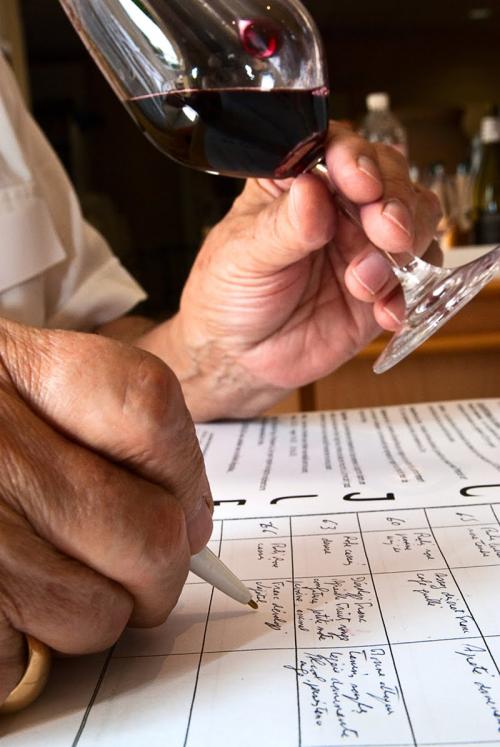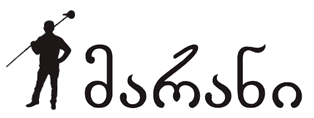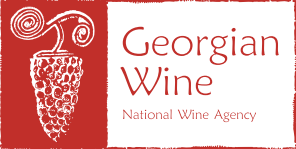
By Robert Linkous
In his 2012 Georgian Wine Guide Malkhaz Kharbedia reports that “the first example of modern Western wine journalism in Georgia” did not appear until 2006, to which wine professionals around the world might have shouted out ecstatically, “Hallelujah!”
Or as the current Managing Director of a leading New York City fine wine retailer once acerbically remarked, “I think there are more wine writers in America than wine drinkers.”
Why the vitriol? Reason one: Robert Parker, of whom a biography is entitled The Emperor of Wine.
In the late 1970’s, as Americans were taking to food and drink consumerism with what could sometimes seem like a feeding frenzy, Parker introduced a newsletter in which he reviewed wines and rated them on a 100-point scale, the latter affording accessibility to those who could not fathom the former.
Those who did not know “bouquet” from “buttery” or “structure” from “astringency” did know the difference between 98 and 84.
Consider the competent wine salesperson delivering an honest, authoritative sales pitch. Momentarily the client seems to take it in trustingly, but then suddenly blenches. “What did Parker rate it?”
To back up the sales pitch with a number was to betray faith in one’s own palate and knowledge. To admit ignorance was to invite discussion of the reluctance to absorb Parker’s epistles chapter and verse. To respond forthrightly and obscenely was to risk blowing the sale and a punch in the mouth.
As Jessica Bell, who leads the Wine and Spirit Education Trust courses recently begun in this country, told Georgia Today, “When I lived in Spain about six years ago, I was shocked at the power Robert Parker had,” though nowadays that power, she assumes, has been diffused among “less published wine personalities.”
Down under James Halliday is “in effect Australia’s version of Robert Parker,” according to Dan Traucki, Australian wine writer and industry consultant, but down there a slew of wine journalists have popped up and gained clout.
As he explained, “High scores from the known and reputable wine writers” can be “more advantageous than a medal at a wine show … in these days of the portable electronic media.” In our modern world shoppers “in a bottle shop Google the wines they are looking at on their iPhone” to get ratings.
Those who had the Parker papers shoved in their faces once too often and fled howling and screaming from the wine business had it better than they could have imagined.
In South Africa the implement with which to most effectively put the lowly salesperson in his place is Platter’s South African Wine Guide, published yearly since 1978, both pocketsize and capacious, and packed with notes and ratings regarding scores of wineries and wines.
To the knowledge of Dr.Winifred Bowman, a member of the distinguished Platter tasting panel, it is “annually the most sold book of all genres in South Africa.”
Not even Parker outsells Stephen King, and at the airport in Cape Town Bowman has spied “many tourists buying the Platter’s before they even look for their taxi!”
So she had “my heart in my throat with the first bottle I opened, because of the tremendous responsibility of getting it right.”
Cape Wine Master Catherine Dillon, however, reckons that the “experienced wine aficionado has deeper understanding and knowledge of wine than the average consumer,” and may forgive and forget wine ratings with which he or she does not agree, but she noted that some regard the guide as “too influential and prescriptive,” especially since “wines are not tasted and scored blind.”
The panelists know what they are tasting, and may be influenced by reputation or lack thereof.
But Bowman, unquestionably conscientious, assured Georgia Today that “many, many wines” are “retasted blind to check and make sure we are as close to the mark as possible,” and all are tasted “in context of the vintage” and “previous submissions … to produce a track record of a wine…”
In America, “Quality to price ratio is the most important factor driving sales today,” thinks Robert Henry, winemaker at Pamplin Family Winery in Washington State, though he has benefited by sending his wines to “prominent regional bloggers and local pundits in the area.”
Similarly, back east in Virginia, Michael Heny, winemaker at Horton Vineyards, and others in the area “have stopped submitting to the national publications,” suspecting that “emerging wine regions” – and he includes Georgia – are not “judged on an even playing field.”
Still, when The Washington Post reminded readers that fifteen years before Horton “won a Viognier contest against wines produced by some of California’s most celebrated winemakers,” Heny heard sweet music of the telephone “ringing off the hook” while the fax machine heated up with orders from wholesalers.
Proliferating wine journalists, meanwhile, in print and on-line, contend for smaller pieces of the pie and, in the observation of British Master of Wine Angela Muir, in the industry some thirty years, “a journalist has to be not only good but very well-known and able to conduct tutored tastings etc. in order to remain alive.”
This is hardly “objectionable,” however, as long as journalists “take care to be very even-handed about which wines they show.”
Muir remembers a past when “wines were surprisingly well noted” in American wine publications, “and there, by magic, was a longish advert a few pages later;” and “a couple of publications on both sides of the Atlantic were strongly believed to mess with the copy written by perfectly respectable wine journalists depending on the advertising revenue from specific producers.”
All in all, though, Muir has found the UK wine business to be “remarkably clean,” but in the mid-1980’s, in New York City, there was a wine magazine which vanished long ago where things were not quite so sanitary.
Briefly I was Wine Coordinator. I trotted in wines to the editor and publisher, who tasted them blindly and fairly, and dictated tasting notes and ratings.
And any winery which wanted to see a favorable review and score in print only had to cough up 300 dollars.
Yes, this should have had us wrestling with our scruples, but in fact the wine staff was too busy seething with indignation at the rumor that after hours the editor used office space to make porno movies … without casting any of us, or even inviting us to audition.
Next installment, we look at wine journalism in Georgia, before which we remain on the lookout for photographs documenting the grievous imputations against the American pornographic wine publisher, copies of which may be sent to our offices in a plain brown wrapper.
© georgiatoday.ge






